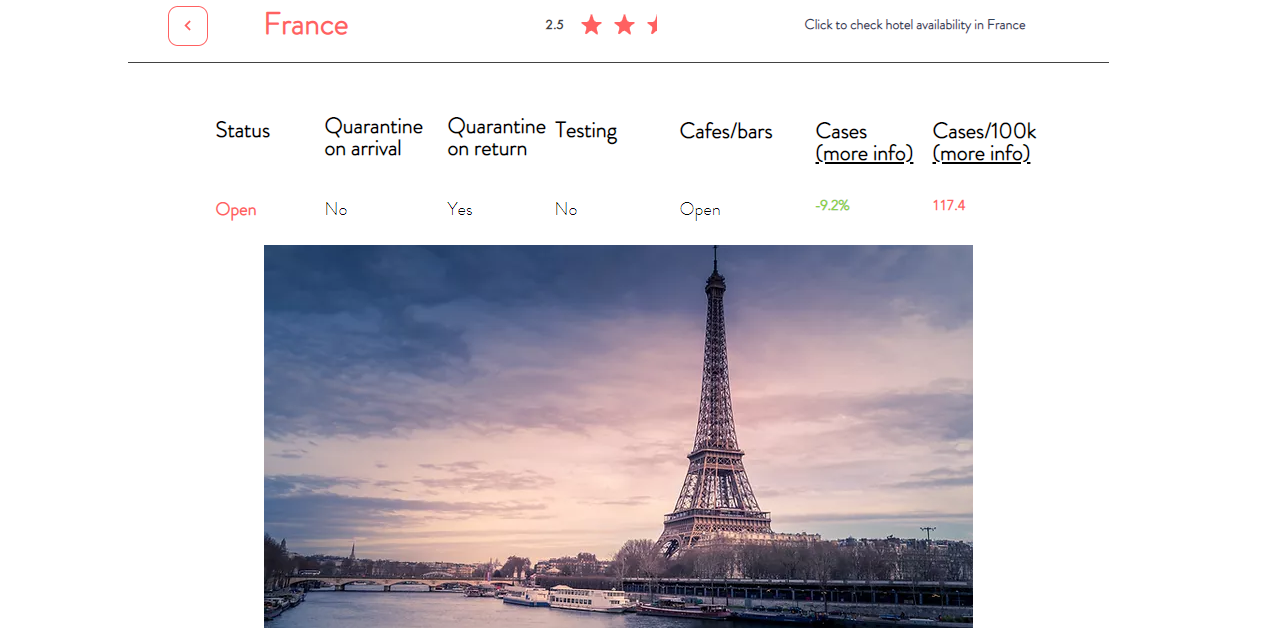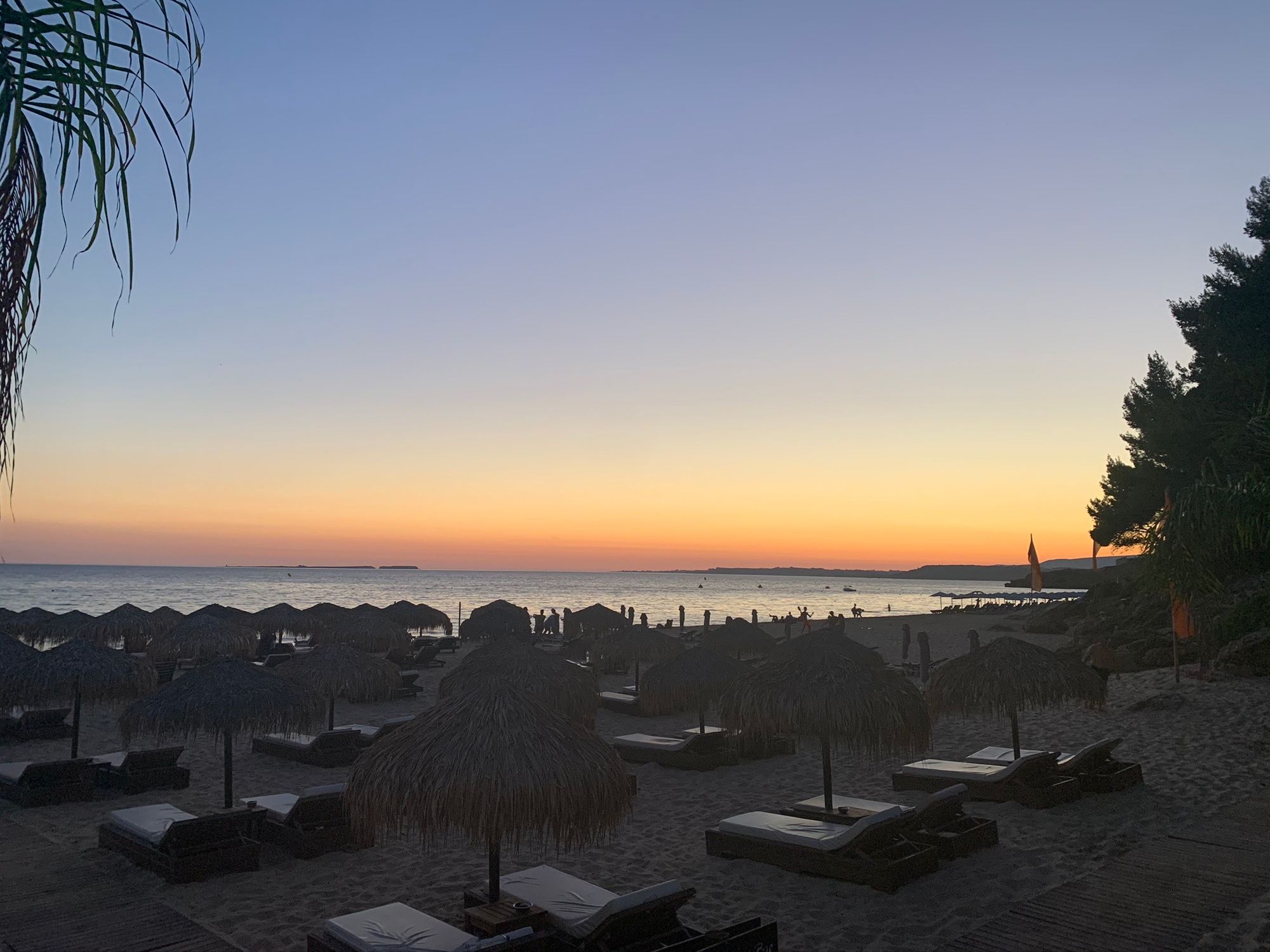By Rebecca Pardon, Travel Deputy Editor and Tom Hatfull, Bristol Economics Graduate
The Croft Magazine // Tom Hatfull about COVID Travel Checker: the comprehensive guide to travel.
As we watch Boris Johnson again solemnly stride the Downing Street corridors to address another gloomy Coronavirus briefing to the nation, this upcoming first term at university seems bleak; Freshers Week FOMO is replaced by FOMMOV (Fear Of Missing Mask Or Visor) and those of us already buzzed for Christmas wait nervously.
Although packing up our PPE, mosquito spray and Birkenstocks is currently not the priority for most of us (navigating the aisles at Sainsburys is already a formidable mission, let alone international borders), travel is certainly featuring more frequently in our nostalgic mid-afternoon daydreams.
Thankfully, Bristol graduate Tom Hatfull spent his lockdown setting up covidtravelchecker.com, a website which allows you to clearly compare travel information for different countries in one place.

‘I was just browsing the government website in lockdown,’ Tom explained. ‘And realised there was no central source of information to easily compare countries.
‘I realised there was a huge gap in the market for this kind of site where users can easily get an in-depth analysis of specific countries, and even see if the situation in this country is getting better or worse.’
Using COVID Travel Checker is a seamlessly easy experience. Countries are rated using a five-star system, based on a combination of two scores: the first measures how easy it is to enter and exit the country, the second the availability of safe activities you can do once there.
France, for example, currently has a rating of 2.5 stars.
It took Tom and his brother about 2-3 months to set up COVID Travel Checker.
‘My brother was really helpful when we were gathering the initial data,’ Tom told me. ‘He took responsibility for researching a whole continent, which allowed us to launch as quickly as possible.

‘Regarding the tech side of things, my coding knowledge was pretty limited so I taught myself the basics to make the search and filter options, and display the case data.’
Searching for your desired destination on the website will tell you whether or not the country is ‘open’ to visitors, quarantining and testing requirements, whether cafes and bars are currently open and the country’s rates of infection.
However, launching this sleek site was not without its challenges.
‘After we launched, the travel situation started to change rapidly,’ Tom explained. ‘I realised if we kept updating the site manually it would have been almost impossible to stay on top of all the travel updates.
‘This led me to automate a lot of our processes, which has made it a lot easier to stay on top of and has given me some free time to work on innovating new features and expand our social media presence.’
A further challenge Tom faced was deciding on which COVID case data to include to measure situation in each country.
‘There are so many metrics so we had to be selective about which ones to use.
‘I decided on a combination of weekly change in COVID cases and cumulative weekly COVID cases per 100,00; the latter is what the government use too as a basis for travel corridor decisions.’
As Tom is the second Bristol student to launch a site of this kind, I suggested to him that travel restrictions might be something students in particular are struggling with.
‘So many students opt to travel in their summer that its almost become synonymous with being a student,' he said. 'Years abroad provide a great way to study for a year in another country and truly immerse yourself in a different culture.
'Also, international students improve the student experience as you get to meet loads of different people from all over the world on campus.’

Tom’s website includes a blog with a series of thought-pieces on the future of travel. With one of these almost forebodingly exploring the ‘Re-emergence of Victorian Holidaymaking’, I asked Tom what he thought post-COVID travel would look like.
‘I do believe the pandemic has changed the travel landscape for the foreseeable future. Many countries which people used to enjoy travelling to, but which struggled to contain cases, will likely see a slow recovery.
‘I believe that going forward [how well a country has responded to the pandemic] is going to be one of the main features determining future travel patterns.’
With covidtravelchecker.com receiving almost 100,000 views in less than two months, 20,000 monthly users and over 2,000 people signed up to receive travel updates from the site, what are Tom’s future plans for his website?
‘For the winter period, we plan to change the focus of our blog to talk about the ‘winter sun’ and skiing destinations more.
‘I’m currently looking at implementing a travel forum to allow users to discuss their concerns and experiences on the site.
‘The site only launched a few months ago so we are constantly innovating and making changes; I’m certain there will be plenty more changes to come.’
National lockdowns and enforced inertia can provide the perfect opportunity to launch a website. I asked Tom for any advice for those of us who didn’t manage to be as productive (I personally cannot imagine what else I was doing) during this time.
‘It sounds cheesy but my advice is to just go for it! But do be prepared to dedicate a lot of time to it.'
Featured Image: Epigram/ COVID Travel Checker
Check out COVID Travel Checker here.









